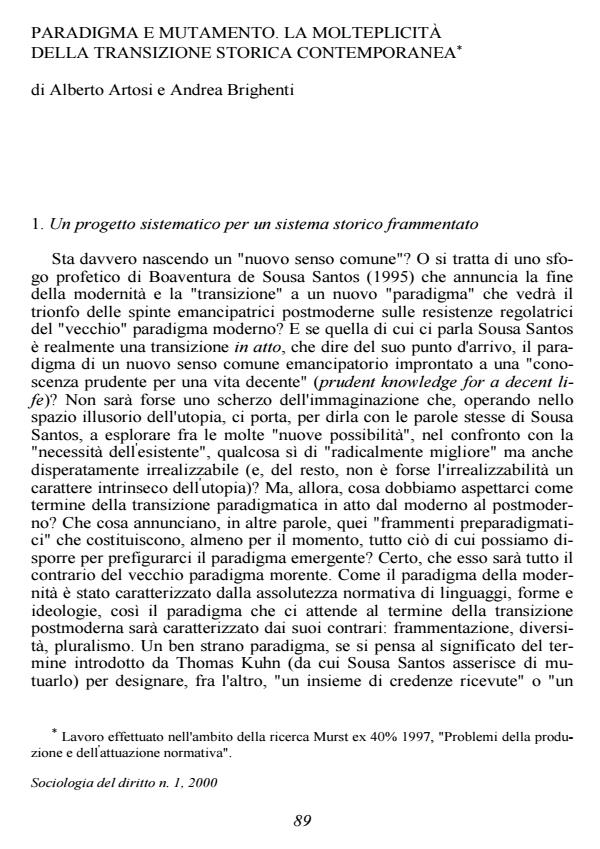Paradigma e mutamento. La molteplicità della transizione storica contemporanea
Titolo Rivista SOCIOLOGIA DEL DIRITTO
Autori/Curatori Alberto Artosi, Andrea Brighenti
Anno di pubblicazione 1 Fascicolo 2000/1 Lingua Italiano
Numero pagine 25 P. Dimensione file 116 KB
DOI
Il DOI è il codice a barre della proprietà intellettuale: per saperne di più
clicca qui
Qui sotto puoi vedere in anteprima la prima pagina di questo articolo.
Se questo articolo ti interessa, lo puoi acquistare (e scaricare in formato pdf) seguendo le facili indicazioni per acquistare il download credit. Acquista Download Credits per scaricare questo Articolo in formato PDF

FrancoAngeli è membro della Publishers International Linking Association, Inc (PILA)associazione indipendente e non profit per facilitare (attraverso i servizi tecnologici implementati da CrossRef.org) l’accesso degli studiosi ai contenuti digitali nelle pubblicazioni professionali e scientifiche
This paper examines various views of the different dimensions of contemporary historic transition. The authors begin from Boaventura de Sousa Santos' model of a "paradigmatic" transition which should shape a "new common sense". They consider some possible objections to Santos' arguments and try to focus on the consequences and perspectives his model can offer. A review of the views of other contemporary philosophers working in the fields of law, politics, ethics and economy allows them to contextualize Santos' views and some applications of his model. They suggest that Santos' crucial concepts of "regulation" and "emancipation" could be better used in combination with the molar/molecular dichotomy. Finally, they maintain that what we need nowadays is not only a revolution, i.e., a transition from an old paradigm to a new one, but also a "dia-volution", i.e., a revolution of mentality, that enables us to overcome the impasse of incommensurability by considering two paradigms at the same time.;
Alberto Artosi, Andrea Brighenti, Paradigma e mutamento. La molteplicità della transizione storica contemporanea in "SOCIOLOGIA DEL DIRITTO " 1/2000, pp , DOI: